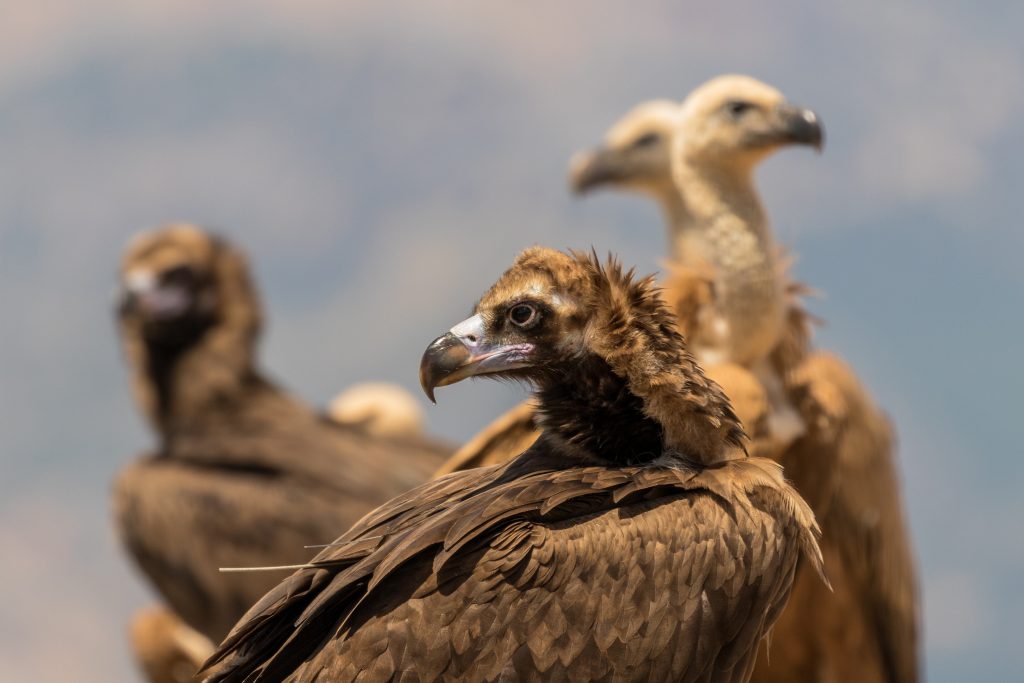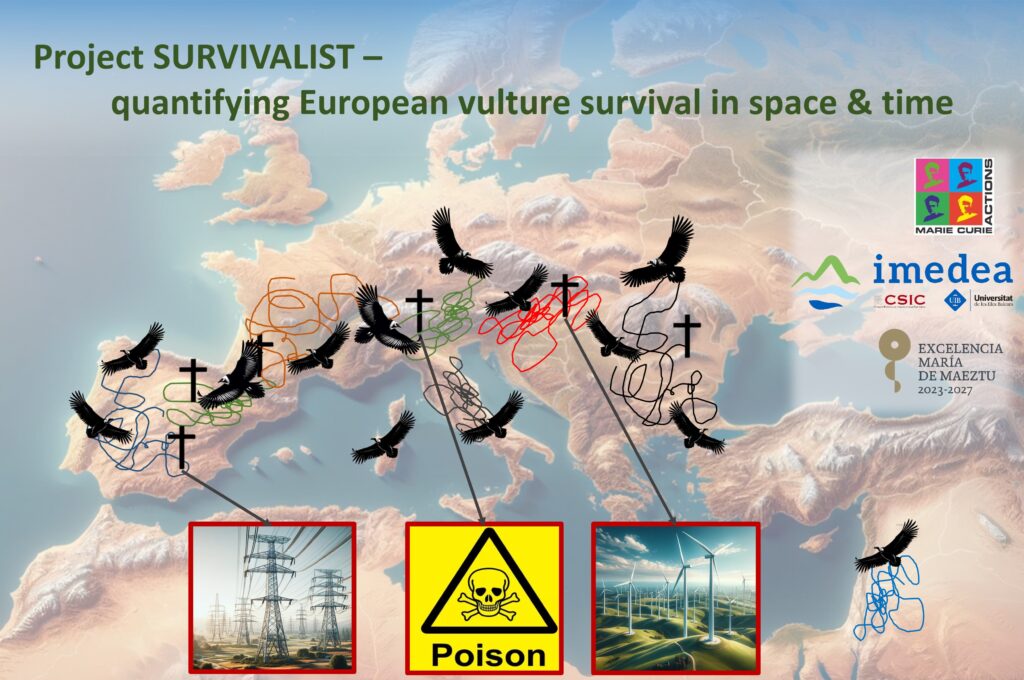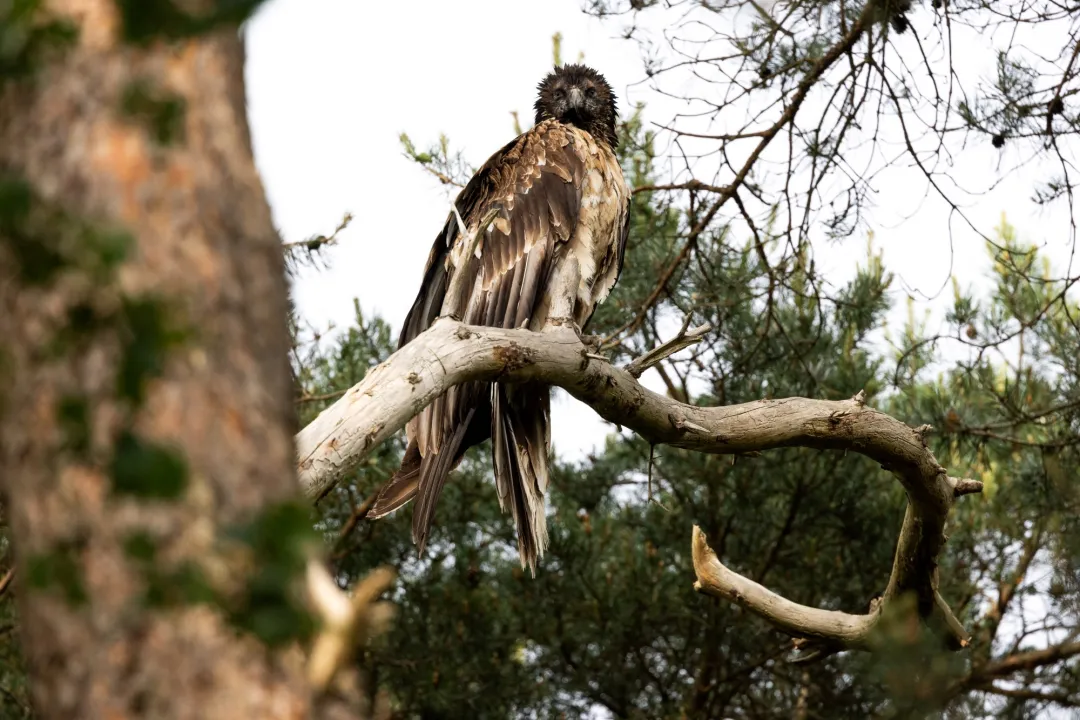
The SURVIVALIST project aims to quantify the survival of three of four of Europe’s vulture species between different life stages and across a whole continent. Conducted in Europe and surrounding regions, and driven by a multistakeholder collaborative effort, its primary goal is to enhance understanding of vulture mortality to inform effective conservation efforts. The project’s outcomes will inform targeted conservation strategies, addressing the pressing need to safeguard these vital species against pervasive threats, such as poisoning and infrastructure-related mortality.
Vultures in Europe: A tale of optimism and threats
Europe provides a sanctuary for four distinct vulture species: the Griffon Vulture, the Bearded Vulture, the Egyptian Vulture, and the Cinereous Vulture. These avian scavengers play a role in sustaining ecosystem health by efficiently disposing of dead animals. Nonetheless, their existence is jeopardized by various human-induced drivers such as habitat degradation, deliberate and accidental poisoning, and fatal encounters with wind turbines and other man-made structures.
Encouragingly, thanks to concerted conservation initiatives, populations of the Griffon, Bearded, and Cinereous Vultures are on the rise in Europe, demonstrating the impact of dedicated efforts towards their recovery. Despite these gains, emerging challenges, notably the expansion of renewable energy infrastructures like wind farms, pose increasing risks to these species, threatening to reverse their positive trends. This evolving landscape underscores the necessity of continuous monitoring and adaptive management strategies to ensure the persistence of these majestic and ecologically unique species.
The SURVIVALIST Initiative: monitoring survival across a continent
Recognizing the urgent need for evidence-based action, the SURVIVALIST project aims to address the critical gaps in our understanding of vulture mortality and survival. This ambitious research spans across Europe, building on a vast collaborative network that includes wildlife conservationists, research institutions, and environmental organizations. By integrating GPS tracking technologies with state-of-the-art survival modelling approaches, SURVIVALIST seeks to gather high-resolution data on vulture movements and survival patterns throughout their annual cycle and across different life stages and regions. The study so far gathered data from over 50 projects across Europe, involving over 1300 individuals of Griffon, Cinereous and Bearded Vultures distributed from as west as Portugal to as far east as Bulgaria, Cyprus and Israel.

Unlocking the mysteries of mortality
Preliminary findings suggest that the survival of the three European vulture species studied within the project is relatively high, and aligns with that of healthy vulture populations. The SURVIVALIST project is currently investigating any possible relationship between survival and known threats, such as wind turbine or overhead power line collision risk. Finally, the project aims to provide a map of hotspots of mortality, whereby the areas of disproportionately high mortality are pinpointed. These insights will be crucial for pinpointing where conservation efforts should be concentrated to be most effective, and on which threats.
Looking ahead: scan the horizon for incoming threats
The journey towards securing a future for Europe’s vultures is far from over. The findings from the SURVIVALIST project, while suggesting optimism, also underscore the need for continued research, collaboration, and conservation efforts. Only by understanding and addressing the threats they face, we can ensure that vultures continue to soar across Europe’s landscapes, playing their vital role in the circle of life. The SURVIVALIST project not only contributes evidence-based insights to save these majestic birds from the brink of extinction but also serves as a model for collaborative conservation efforts, where every single partner plays a key role.
About the authors
Andrea Santangeli is currently a Marie-Curie Postdoctoral Fellow at the Animal Demography and Ecology Unit, Institute for Mediterranean Studies (IMEDEA), CSIC-UIB, Spain. Andrea is a conservation scientist deeply focused on applied ecology and evidence-based conservation, with vultures as his most favoured study species. Project SURVIVALIST is a true example of a multi-collaborator endeavour, with many researchers, institutions and other partners involved in sharing data and providing key conceptual inputs, all driven by the common goal of contributing to vulture conservation.
The information in this article was presented at the European Vulture Conference 2023, held from 14 to 17 November in Cáceres, Spain. The event brought together vulture conservationists, researchers, and enthusiasts from around the world to exchange insights, foster collaborations, and explore the latest advances in vulture conservation. Stay tuned as we continue to share more presentations from the conference.
You can now access the recordings of the European Vulture Conference 2023 presentation online.



